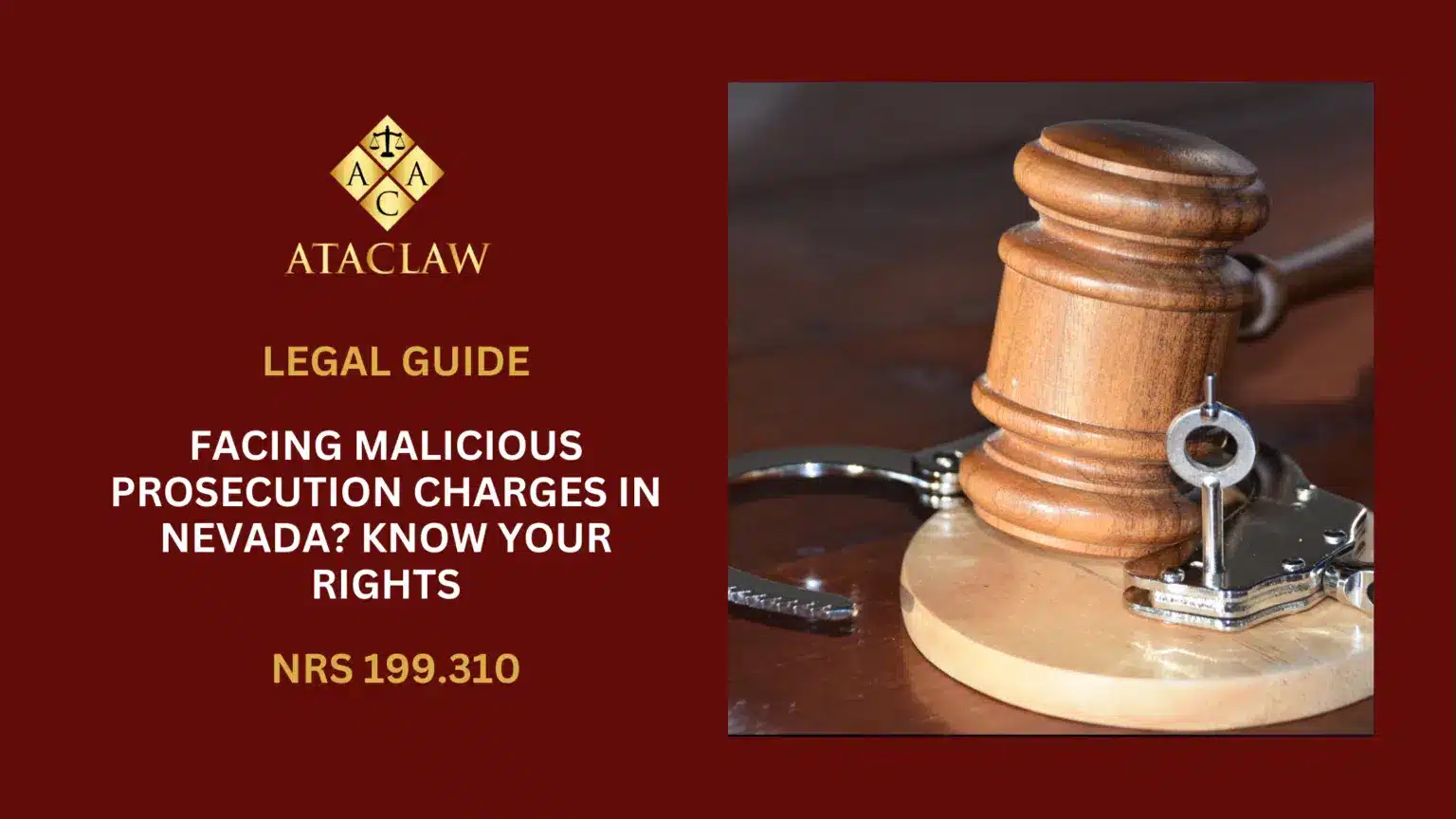Burglary, a term that often conjures images of nighttime heists and stealthy break-ins, holds a significant legal weight in Nevada. As defined by Nevada Revised Statute § 205.060, burglary encompasses the act of entering a building or vehicle with the intention of committing larceny, assault, battery, or any felony once inside. The seriousness of the crime is mirrored in its penalties, with residential burglary classified as a Category B felony, leading to 1 to 10 years in state prison. Situations involving deadly weapons further escalate these consequences, resulting in sentences ranging from 2 to 15 years.
What Constitutes a Burglary Charge in Nevada?
In Nevada, burglary is broadly construed as the unauthorized entry into a variety of spaces—including residences, commercial establishments, other structures, vehicles, aircrafts, or railcars—with the specific aim of carrying out certain illegal acts within, such as:
- Assault: Instilling immediate fear of wrongful physical touch.
Battery: Engaging in wrongful physical contact, such as striking or attacking. - Petty theft: Taking property or cash valued below $1,200.
- Grand theft: Seizing property or cash exceeding the $1,200 mark.
- Any felony-level offense: Crimes punishable by at least one-year incarceration.
- Pursuing fraudulent gains: Acquisitive deception for monetary gain or property, pertinent mainly to residential burglary cases.
Notably, to secure a conviction for burglary, prosecutors need not provide evidence of the actual commission of these crimes post-entry. The critical element is the accused’s intent to commit a crime upon entering the property.
Consider this hypothetical: Imagine an individual, let’s call him Eric, who enters his office after-hours with the plan to extract $1,000 from a company safe. But before he acts, he reconsiders and refrains from taking any money. Despite his ultimate decision not to commit theft, Eric could still face burglary charges simply based on his initial intent.
Furthermore, should someone like Eric proceed with the theft, they may confront charges for two distinct crimes: burglary and grand larceny.
Owning Burglary Tools: A Separate Legal Concern in Nevada
Under Nevada’s laws, individuals can face burglary charges without the act of “breaking and entering” traditionally associated with the crime.
This means that if an individual possesses the intention to commit either a felonious act or theft within any building or vehicle, they may be found guilty of burglary. This holds true regardless of how they entered the property — whether that entry was via an open or unlocked door or window, or even after being invited inside.
However, it’s important to note that in cases where there was “breaking and entering,” the accused may face a particularly tough challenge in court. The presence of forced entry often leads to the presumption of criminal intent, and this perception can strongly influence judges and juries.
What Are the Legal Consequences of Committing Burglary in Nevada?
Burglary charges in Nevada vary widely in severity depending on several factors, including the presence of a deadly weapon and the type of property involved. ATAC LAW segments these complexities into the comprehensible guide below, aimed at clarifying the penalties associated with different burglary scenarios in Nevada.
Burglary Involving a Deadly Weapon
When the burglary is carried out with a deadly weapon like firearms, knives, or even improvised tools such as lead pipes or broken glass, it escalates to a category B felony, facing:
- A prison sentence ranging from 2 to 15 years, and
- Fines reaching up to $10,000.
Burglary Without a Deadly Weapon
- The severity of penalties for non-armed burglary offenses in Nevada is contingent upon the specific location targeted during the crime.
Residential Burglary (Category B Felony):
- Punishment includes 1–10 years of imprisonment.
- The court may opt for probation under mitigating circumstances, provided there is no prior history of burglary or related offenses.
Burglary of a Business (Category C Felony):
- Involves a prison term of 1–5 years, plus fines that could go up to $10,000, at the court’s decision.
Burglary of a Non-residential, Non-business Structure (Category D Felony):
- Carries a sentence of 1–4 years with possible fines up to $5,000.
Burglary of a Motor Vehicle:
- The first offense is treated as a category E felony, where probation and a possible one-year jail term could be the sentence, unless the individual has more than two prior felony convictions, which could lead to 1–4 years in prison and up to $5,000 in fines.
- Subsequent offenses escalate to a category D felony, with 1–4 years in prison and fines up to $5,000.
Possession of Burglary Tools
- Possessing tools specifically for burglary, as per NRS 205.080, is classified as a gross misdemeanor, sanctionable with:
- Up to 364 days in jail, and/or
- Fines not exceeding $2,000.
It’s crucial to note that burglary motivated by sexual intent involves additional lifelong supervision, which, under specific circumstances, might be contested after a decade.
What Felony Category Does Burglary Fall Under in Nevada?
In Nevada, burglary carries different categories of felonies:
- Burglary with a deadly weapon is classified as a category B felony.
- Residential burglary also falls under a category B felony.
- Burglary of a business is deemed a category C felony.
- Burglary of other structures is considered a category D felony.
- Burglary of a motor vehicle on the first offense is labeled as a category E felony.
What Is the Minimum Prison Time for Burglary in Nevada?
The minimum sentence for burglary in Nevada is one year in prison; with a deadly weapon, it rises to two years. Probation instead of jail may be an option, depending on the circumstances.
Is Burglary Considered a Violent Offense in Nevada?
In Nevada, burglary is classified as an offense against property, meaning it’s not inherently considered a violent crime. The presence of a gun or deadly weapon, though, can lead to harsher penalties.
Can Burglary Charges Lead to Deportation?
Yes, being convicted of burglary, an aggravated felony, may result in deportation. Non-citizens charged under NRS 205.060 are advised to immediately seek guidance from a skilled immigration and criminal defense attorney. If the defense can secure a charge dismissal or reduction to a non-deportable offense, it might be possible to avoid deportation.
Is It Possible to Have a Burglary Charge Dismissed?
Yes, a burglary charge can be dropped, depending on the specifics of the case. A defense attorney’s responsibility includes uncovering favorable evidence and challenging the prosecution’s evidence. Successfully demonstrating insufficient evidence for a conviction may lead prosecutors to reduce the charge to misdemeanor petty larceny or even dismiss it. A clean prior record and cooperation with law enforcement can improve the chances of receiving a favorable plea deal.
What Are the Top Legal Defenses Against a Burglary Charge?
There are three primary defense strategies against burglary charges:
- Wrongful Accusation
Mistaken identity can lead to wrongful accusations of burglary. This could be due to misidentification, someone bearing a grudge, or simply sharing a name with the real suspect. Defense attorneys aim to demonstrate that the evidence used to identify the accused is unreliable, potentially leading to a dismissed charge. - Lack of Intent to Commit a Felony or Theft
A burglary charge requires the intent to commit a felony or theft upon entering a structure. For instance, if Jane enters her neighbor’s home to return a borrowed item and only decides to take something after entering, she lacks prior intent, thus negating a burglary offense. Instead, she would only face charges for theft. Defense lawyers work to cast doubt on the prosecution’s evidence that you had the intent to commit a crime, which might include eyewitness testimony or surveillance footage. In certain instances, incapacitation due to intoxication could argue against the capability to form such intent. - Police Misconduct
Any error by law enforcement that infringes upon an individual’s rights can be grounds for a defense. For example, if the police obtained a confession under duress or violated the Fourth Amendment during a search. In such cases, a defense attorney from ATAC LAW may file to suppress tainted evidence, weakening the prosecution’s case to the point of potentially dismissing the charge or negotiating a plea.
By invoking these defenses, legal counsel aims to create a reasonable doubt about the accused’s guilt, which can result in charges being reduced or dropped altogether.
Can I Seal My Burglary Case Record in Nevada?
In Nevada, the possibility to seal a burglary case record typically exists, but it is contingent on various conditions, including the location of the theft. The following is a breakdown of the waiting periods after which you may request to have the record sealed:
- Burglarizing a Residence: You must wait 10 years after the case concludes before applying to seal the record.
- Burglarizing a Business or Other Non-Residential Structure, or Committing a Burglary of a Motor Vehicle (Subsequent Offense): A waiting period of 5 years post-case conclusion is necessary before the sealing process can commence.
- Burglarizing a Motor Vehicle (First Offense): The record can potentially be sealed 2 years after the case is closed.
- Case Dismissal (No Conviction): If the burglary charge is dismissed and there’s no conviction, you can usually apply to seal the record immediately.
To move forward with sealing a record, you may need to submit a petition to the court, demonstrating that the required time has elapsed and that you’ve met any additional eligibility criteria. It is advisable to consult with legal counsel such as ATAC LAW to navigate the sealing process, as laws and procedures can be complex.
What Are the Different Types of Theft Crimes Related to Burglary in Nevada?
In Nevada, alongside burglary, several related theft offenses come with their own set of legal definitions and penalties. Understanding these can provide clarity on how theft crimes are categorized and prosecuted within the state.
- Home Invasion (NRS 205.067)
Home invasion involves forcefully entering an inhabited dwelling without the owner’s or lawful occupant’s permission. The presence of an individual in the dwelling at the time of the entry, or whether anything was stolen, does not alter the charge. This offense is classified as a category B felony, aligning its penalties with those for burglary. - Housebreaking (NRS 205.0813)
Housebreaking refers to the act of squatting or unlawfully residing in a vacant dwelling. For individuals charged with a first offense, housebreaking is considered a gross misdemeanor and may result in penalties including up to 364 days in jail and/or fines reaching up to $2,000. - Robbery (NRS 200.380)
Robbery is defined as taking property from another through force, violence, or the threat of injury. An example of this would be a scenario where an individual holds up a cashier using a weapon. Robbery charges are treated as a category B felony, with sentences ranging from two to fifteen years in prison. If a deadly weapon was used during the robbery, the potential prison time could be doubled. - Larceny from a Person (NRS 205.270)
Larceny from a person, such as pickpocketing, involves stealing from someone without the use of threats or violence, often leaving the victim unaware of the theft until later. In Nevada, this act is a category C felony. The consequences include the restitution of the stolen items, a prison sentence of one to five years, and possibly a fine of up to $10,000. Notably, if the victim is found to have an infirmity, the court may decide against granting probation.
In facing burglary charges, several defense strategies can be employed, highlighting the importance of skilled legal representation. Common defenses include asserting the lack of intent to commit a crime upon entering, wrongful accusations, or misconduct by law enforcement.
As legal practitioners specializing in Nevada’s burglary laws, ATAC LAW is committed to demystifying the legal process and advocating for the rights and best interests of those accused. Understanding the nuances of burglary charges and penalties is paramount — and it’s here that ATAC LAW’s expertise shines, guiding you through every step towards achieving a favorable legal outcome.
For further legal assistance and to discuss your case with an expert, don’t hesitate to contact ATAC LAW.




